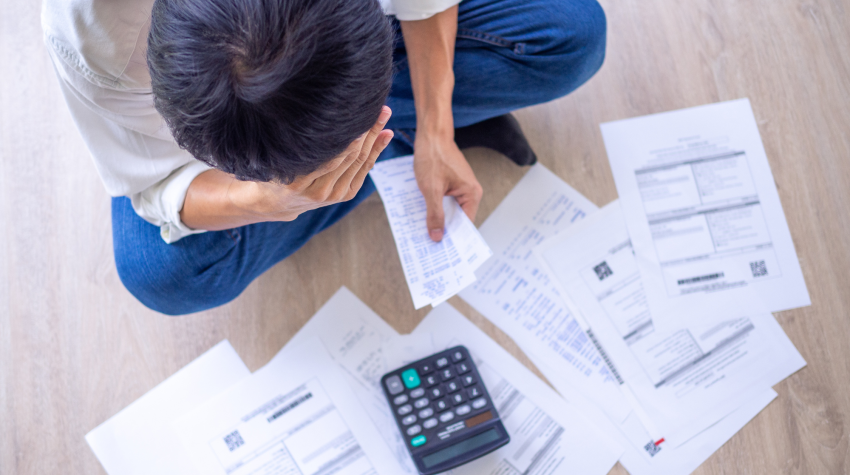
Anglicare Australia’s new report, which documents how people on low incomes often end up paying more for basic goods, suggests cutting the Stage 3 tax cuts and regulating food and energy prices.
The Poverty Premium report, released on September 12, points out that those who are already poor pay a price for being poor. It’s called a “poverty premium”.
The report identified food, credit and finance, transport, data and communications, energy and insurance as key areas where the already poor are being hit the hardest in the cost of living crisis.
Rents have risen, on average, by 11% this year and interest costs are set to double by 2024. Food prices are also outpacing inflation.
The report found that poor people prioritise housing costs, then bills and debt repayments, and compromise on transport and food.
While some people can cut back on discretionary items, the report said “for the lowest-income households, there has never been room in the budget for these kinds of luxuries”.
“More than two million households in Australia have run out of food in the last year due to limited finances. A staggering 72% of respondents [on Centrelink payments] regularly skipped meals.”
Food insecurity is worse in rural and remote areas, where prices can be up to three times more than in cities.
The report compared common items from Coles supermarkets: it found that prices for those who can’t afford to bulk purchase rose by 20–95%.
For example, a 20-pack of toilet paper cost $11 (31¢ per 100 sheets), while a 6-pack cost $6.50 (60¢ per 100 sheets) — a 93% poverty premium. Five hundred grams of beef mince cost $14 a kilogram, while a 1.9kg value pack cost $11.50/kg — a 22% poverty premium.
Meanwhile in transport, a daily Myki pass in Naarm/Melbourne costs $9.30 a day, while an annual pass costs $1794 ($7.47/day), a daily saving of more than $2.
Older cars use, on average, an extra litre of petrol every 100 kilometres. The report noted that this adds an average 10% “poverty premium” on to those who don’t have a newer model.
Similarly, the costs of energy, internet, car and home insurance and mobile data are essentials that poorer people pay more for.
But this is not why people are poor, the report notes. It points to the low rate of welfare payments, the high cost of housing, insecure jobs and stagnating wages as the key drivers.
It said “the poverty premium stretches already impossible budgets to breaking point”.
More than 3 million people are living below the poverty line, and the “depth of poverty” has been growing.
The poverty gap — the difference between the poverty line and the average weekly income of people in poverty — has risen from $168 a week in 1999 to $304 a week this year.
At the same time, the rate of JobSeeker and other welfare payments has fallen to less than half the poverty line, even with Labor’s paltry $56-a-fortnight rise.
“It is now so low it fails to perform that core function [of providing a safety net], and people are unable to afford basics.”
The rise in precarious and insecure work, along with stagnating wages, is increasing poverty: 37% of people in poverty live in households where wages are the main source of income.
The report recommended raising welfare payments above the poverty line; boosting the minimum wage; scrapping the Stage 3 tax cuts; regulating telecommunications and energy costs; and a national food security strategy.
“The number one action we can take to lessen the impact of the poverty premium is lifting every Australian out of poverty,” it concluded.